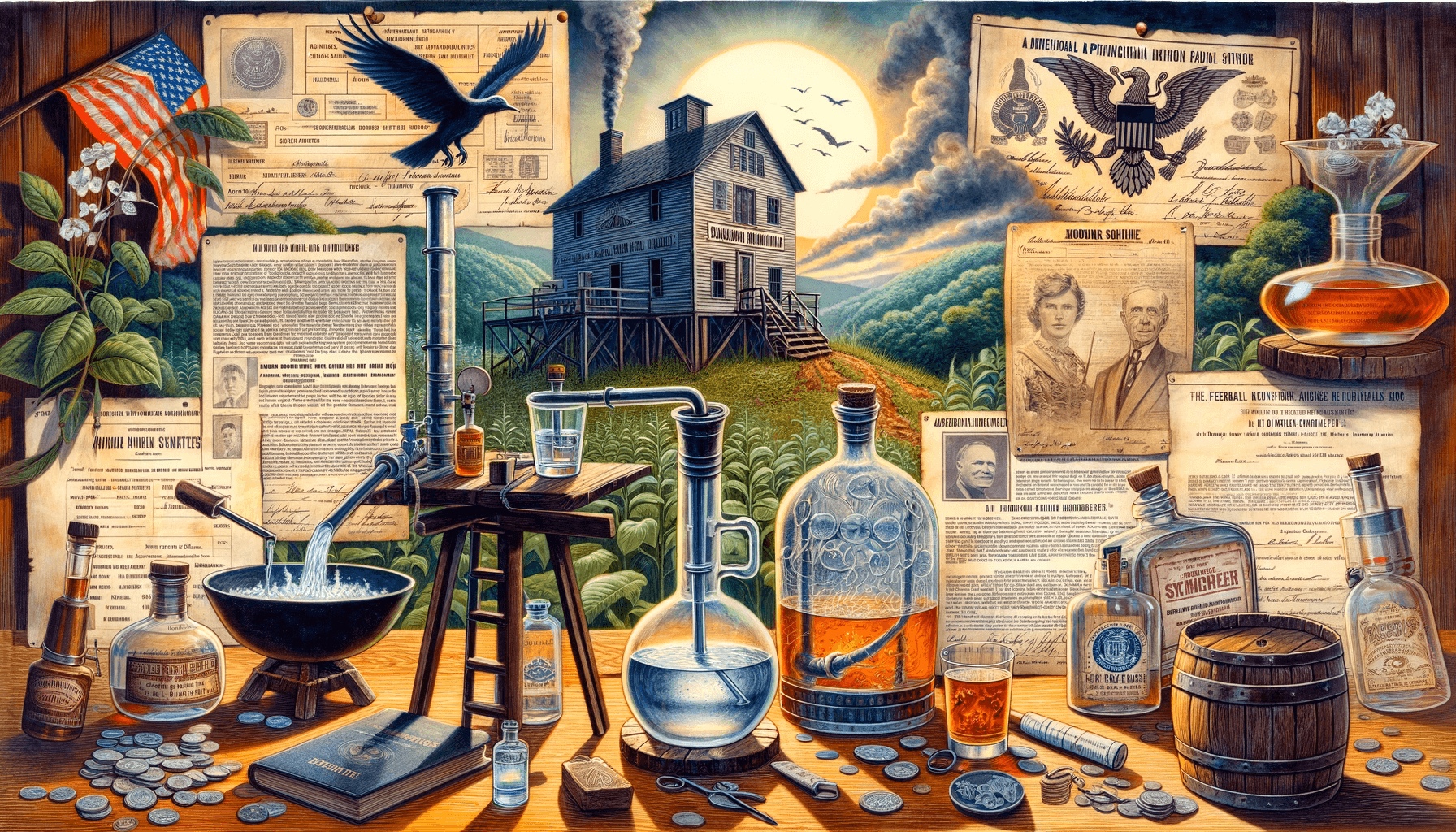Hey there, legal eagles and spirit enthusiasts! Today, we’re diving into a topic as murky as a mason jar of homemade liquor: Is making moonshine illegal in the United States? With its roots deeply entrenched in American history, moonshine – unaged whiskey traditionally distilled in secrecy to avoid taxation – continues to spark interest and controversy. So, let’s shed some light on the legalities surrounding this potent potable.
A Brief History of Moonshine
Moonshine’s story begins in the early days of American settlement, where the distillation of spirits served both as a way to preserve excess grain and as a medium of trade. However, government taxation on spirits led to the rise of illicit distilling, particularly in Appalachia, where the term “moonshine” became synonymous with homemade, untaxed whiskey.
The Legal Landscape
Contrary to the rebellious spirit it symbolizes, the production of moonshine is heavily regulated in the U.S. Federal law mandates that anyone wishing to distill alcohol must obtain a permit from the Alcohol and Tobacco Tax and Trade Bureau (TTB). This requirement applies regardless of whether the alcohol is for personal use or for sale.
Keyword Spotlight: “Federal Distillation Laws”
“Federal distillation laws” play a crucial role in governing the production of spirits, including moonshine. These laws are designed to ensure safety, regulate alcohol production, and collect taxes. Operating a still without a permit constitutes a violation of federal law, with potential penalties including fines, imprisonment, and confiscation of equipment and property.
State Regulations: A Patchwork of Policies
While federal laws provide the overarching legal framework, state laws on moonshine production can vary widely. Some states have enacted legislation allowing for limited home distilling without a federal permit, but these often come with strict conditions and cannot supersede federal regulations.
The Risks of Moonshine Production
Beyond legal considerations, making moonshine carries significant safety risks. Improper distillation can lead to contamination by methanol, a toxic substance that can cause blindness or even death. Additionally, the operation of makeshift stills presents a substantial fire hazard.
The Craft Distillery Movement: A Legal Avenue
In recent years, the craft distillery movement has offered a legal pathway for those interested in small-scale spirit production. Craft distilleries operate under specific licenses, allowing them to legally produce and sell spirits, including traditional moonshine recipes, while adhering to safety and quality standards.
Navigating Legal Distillation: Tips for Enthusiasts
- Educate Yourself: Understanding both federal and state laws is crucial before considering distillation.
- Consider Licensing: For those serious about distilling, researching the process for obtaining a distiller’s license can provide a legal avenue to pursue this passion.
- Safety First: The risks associated with homemade distillation cannot be overstated. Engaging in legal, regulated distillation practices is the safest way to explore spirit production.
Final Thoughts: A Toast to Legal Clarity
The allure of moonshine lies not just in its potency but in its deep connection to American history and culture. However, the legal implications of moonshine production in the modern era necessitate a clear understanding of the laws and risks involved. For spirit enthusiasts, the burgeoning craft distillery industry offers a safer and legal alternative to explore the rich traditions of distilling.
In our exploration of moonshine’s legality, we’re reminded of the broader themes of regulation, safety, and innovation that pervade the American spirit industry. Whether you’re a history buff, a legal professional, or simply curious about this high-proof hobby, the story of moonshine serves as a potent reminder of the complexities at the intersection of law, tradition, and entrepreneurship.









Leave a Reply